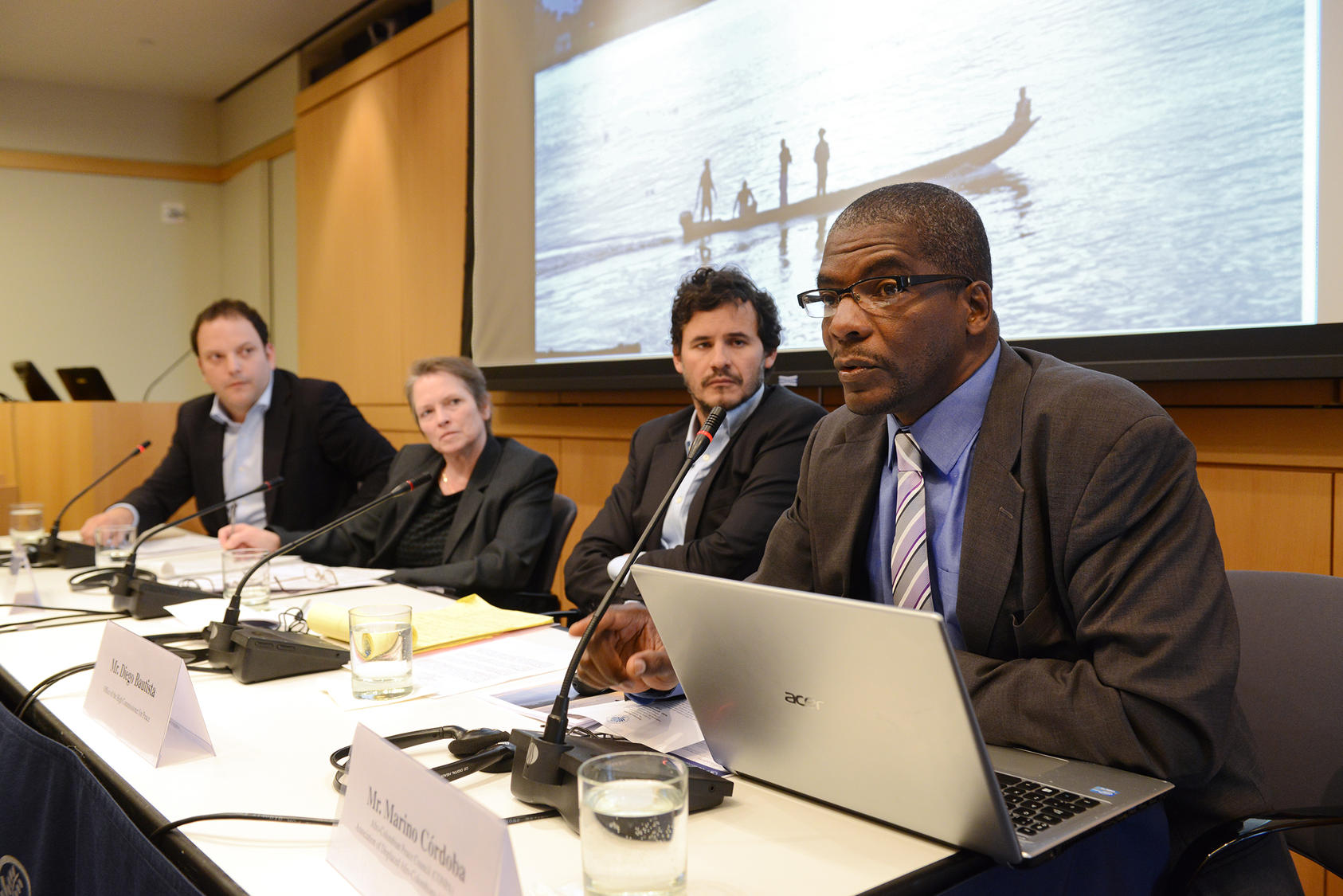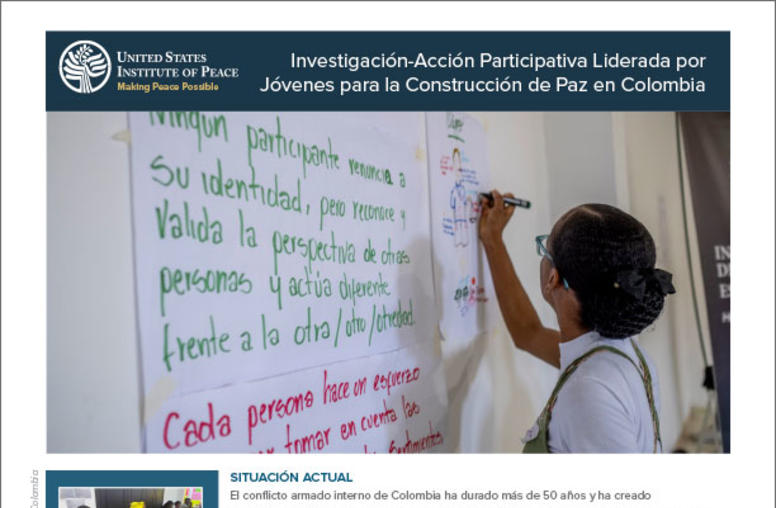Colombia: Peace from the Regions
A Colombia Peace Forum Event
Amid Colombia’s half-century of armed conflict, with peace talks progressing, the government’s High Commissioner of Peace, Sergio Jaramillo, has called for building “paz territorial,” or “peace from the ground up.” This idea is meant to engage regional institutions, local authorities and diverse social sectors and communities in translating an eventual peace accord into practice. But much is still to be defined. Who will lead and organize the process? How is it to be supported logistically? On March 27, 2015, the U.S. Institute of Peace hosted a session of the Colombia Peace Forum to explore these and other questions with a panel of experts.

The Colombia Peace Forum is a series of policy discussions sponsored by USIP to support a peaceful resolution to one of the world’s longest-running internal armed conflicts. At our March 27 forum, a panel of experts analyzed how a peace accord might be implemented on the ground. How will it build on existing efforts? And how can it be made inclusive and participatory? The session also took questions of the linkages among the regions and with the central government; the rights and needs of citizens; and ways to enhance citizens’ participation and effectiveness in promoting peace in the regions.
The program was conducted in Spanish with a simultaneous English translation for those who attended the event. The webcast was in Spanish and an English video of the event will be available a day or so after.
Speakers
- Virginia M. Bouvier
Senior Advisor for Latin America Programs, United States Institute of Peace (Presentation in English; Presentation in Spanish) - Andrés Santamaría Garrido (Presentation)
President, National Federation of Ombudspeople (Personeros) - Marino Córdoba (Presentation)
Afro-Colombian Peace Council (CNPA) and Association of Displaced Afro-Colombians (AFRODES) - Diego Bautista
Adviser for Territorial Peace and Post-Conflict Institutional Architecture
Office of the High Commissioner for Peace


